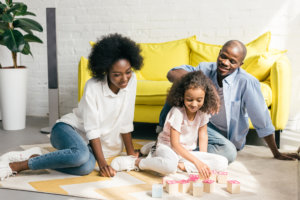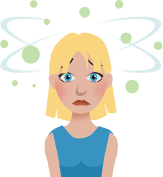Learning and ADHD: What’s Play Got to Do with it?

Which teachers had the biggest impact on your learning? Do you remember how they taught you? Did it involve play? I bet it did. Play is especially important for learning and ADHD.
Play has a powerful impact on our learning. While formal research on play as a distinct field of study is growing, many of the most recognized names in the field of Psychology, including Freud, Piaget, Erikson, James, and Vygotsky, included the importance of play in their theories of human development. What do they say? In a nutshell, “Play is critical to human development.”
Research in the field has established that play:
- builds the ability to solve problems, negotiate rules, and resolve conflicts;
- develops confident, flexible minds that are open to new possibilities;
- develops creativity, resilience, independence, and leadership;
- strengthens relationships and empathy; and
- helps grow strong healthy bodies and reduces stress.
Research has also shown that children who play do better in school and become more successful adults. Through play, children learn to:
- question, predict, hypothesize, evaluate, and analyze;
- form and substantiate opinions; and
- persist through adversity.
This is all well and good, but what an adult thinks of as play is not always the type of play that kids need. As parents, we often try to act as play directors. We sign our kids up for sports, organize activities, plan outings, and set the goals for the play activities. We want our kids to have fun, but we also want them to be safe – and maybe learn something in the process.
What's Missing in Learning & ADHD?
Unfortunately, our children are missing out on “free play” -- the type of play that allows children to use their imaginations, explore, be curious, engage in trial and error, be free from judgment, and learn in their own way.
From “free play” we learn the rules for social interactions, cooperation, planning, negotiation, self-management, frustration tolerance, conflict resolution, and problem-solving. We develop our executive skills. Yep! I snuck that one in there. If you know ADHD and learning, you probably know something about executive skills. These skills -- such as sustained attention, emotional control, planning, persistence, mental flexibility, social thinking, and metacognition -- are at the root of many struggles faced by kids and adults with ADHD.
It's true. Play - especially “free play” - helps us develop and engage our executive skills. When we are playing, the challenges of ADHD are less likely to get in the way, and we are best able to learn.
Article continues below...
Want to Stop School Struggles?
Download a free tipsheet "10 Parenting Tips for School Success" to stop constant challenges at school and at home!
What is “Free Play”?
So what is “free play” really? It is unstructured play that involves imagination, taps into our most powerful emotions, and is spontaneous, anxiety-free, and purposeless. During “free play” we explore, experiment, push the boundaries, and take risks. When children are concerned about their parents' (dis)approval, worried about following externally imposed rules, or even just thinking about the expectations of a specific purpose or goal, they cannot fully engage in free play.
Likewise, when adults are concerned about (dis)approval from their boss or peers, try to follow the current trends, or focus on specific outcomes, they are less creative, innovative, productive, and do not learn as well. In adults, our fears get in the way. While children, too, can have fear of the unknown, they crave new experiences. Play allows them to control their fear and turn it into excitement.
When our kids are home or playing with their friends, it may be obvious how we can allow “free play” to happen. But what about when it comes to school or homework? When do we want to “teach” our children information and skills?
“Learning is not what we DO to someone, it's what we inspire.”
Teaching is most powerful when it inspires curiosity, questions, investigation, imagination, possibilities, noticing, evaluating, experiencing, and understanding. At the San Francisco Exploratorium, they posit that “Science is discovering the unexpected,” and you can only do this through play. When we inspire “free play” in the context of learning in the classroom or any other setting, our children are available to learn at their highest potential. And perhaps they might even teach us a thing or two!
What can we do to help our children learn?
- Encourage periods of “free play” (recess) - this is often when ideas “gel.”
- Have fun while learning- this teaches kids that learning is fun.
- Inspire excitement - this can overcome fear, doubt, and self-criticism.
- Remove the stigma of “getting it wrong” - when “failure” is something to learn from, kids feel safe and are more willing to take risks.
- Model mistakes - when even the adults can get it wrong, admit their errors, learn and move on, kids feel more willing to take risks.
- Talk less, do more - learning by doing is most effective.
- Cause curiosity- say something out of place, nonsensical, or interesting to get their attention and make students ponder, question, and investigate.
- Remember that kids learn most from people they like.
Hopefully, you are now thinking about how important play really is for anyone with ADHD. Especially in any learning environment – that is in school, at home, or at work.


